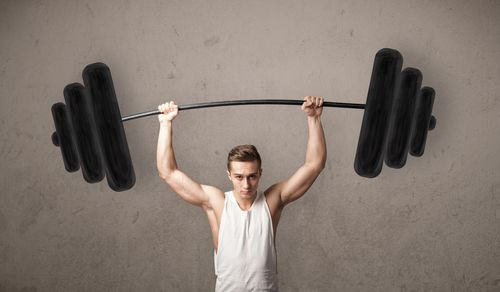Teen Steroid Use Doubled In 1 Year: What Are Parents, Coaches, And The FDA Doing To Stop The Sharp Rise?

The numbers are out, and a new study released by the Partnership for Drug-Free kids reveals a dangerously high increase in teen steroid use. Teen steroid use has doubled in one year (2012-2013) and the risks teens are taking with their health should have their parents, coaches, teachers, and the Federal Drug Administration worried about where they fell short in dissuading high school students from using drugs.
"These new data point to a troubling development among today's teens. Young people are seeking out and using performance-enhancing substances like synthetic hGH — and supplements purporting to contain hGH — hoping to improve athletic performance or body appearance without really knowing what substances they are putting into their bodies," Steve Pasierb, President and CEO of the Partnership for Drug-Free Kids, said in a press release.
Even though 88 percent of teenagers agree that steroids can cause severe health problems, according to the survey, the dangerous increase in human growth hormone (hGH) is still there. Human growth hormone is a natural hormone secreted by the pituitary gland and is responsible for the growth and cell production in children and adolescents, while they’re growing into new muscle and stronger bone.
However, the synthetic hGH is what everyone’s worried about. It was first made available in 1985, and Congress immediately approved limited use to the Secretary of Health and Human Services and prohibited any off-label uses, such as the use for its power to mimic the muscle-building effects of anabolic steroids. They approved use for those with HIV/AIDS, certain tumors, those with short bowel syndrome, and children and adults with short stature.
"These are not products that assure safety and efficacy,” Pasierb said. “And while it's doubtful that all of the teens who reported having used synthetic hGH actually obtained prescribed synthetic human growth hormone, the proliferation of commercially available products that are marketed saying they contain synthetic hGH, or promote the natural production of hGH within the body, is staggering."
The report reveals one in five teens knows at least one friend who uses steroids and another one in five teens believes it’d be easy for them to obtain steroid if they wanted. It’s no surprise why there’s been a doubling effect in teen steroid use from 2012 to 2013. It’s a startling statistic to parents, teachers, coaches, and health care providers alike, considering in 2009 only five percent of teens were using steroids and committing synthetic hGH abuse, and now 11 percent of teens have abused synthetic hGH at least once in their lifetime, while other steroid use increased to seven percent.
"So the implication for parents, health care professionals, policy makers, and regulators is that this is an area of apparently growing interest, involvement, and potential danger to teens that calls for serious evaluation of the areas in which current controls on manufacturing and marketing are failing to prevent the use of these products by teens," Pasierb said.
High school students, as young as 14, are putting their bodies at risk of nerve, muscle, or joint pain, severe swelling, carpal tunnel syndrome, numbness and tingling of the skin, and high cholesterol levels, according to WebMD.
"We know that the win-at-all costs culture in sport and in society as a whole has a direct impact on the health and well-being of young people," said Travis T. Tygart, CEO of the U.S. Anti-Doping Agency. "The results of this study further demonstrate the importance of educating young people, their parents and coaches on the risks associated with the use of performance-enhancing drugs, and the need to protect young people from those who would prey on them as easy marketing targets."
What is being done to reverse the sharp increase teens hGH use? The Partnership for Drug-Free Kids has teamed up with Major League Baseball Charities to launch to Play Healthy program, which is designed to provide parents and coaches with the tools to equip young athletes to make healthier, safer choices.
"What I encounter when talking to teens is the significant pressure they feel to excel," said Tyler Hamilton, a former professional cyclist and anti-doping advocate, who gave back his Olympic Gold medal after admitting to performance-enhancing drug use throughout his career. "Whether it's in sports, school, social status, or appearance, teens feel they need to be better. The study provides a good opportunity for parents and other influential figures in their lives to realize what teens are facing and reinforce a message of unconditional love and acceptance."
Published by Medicaldaily.com



























